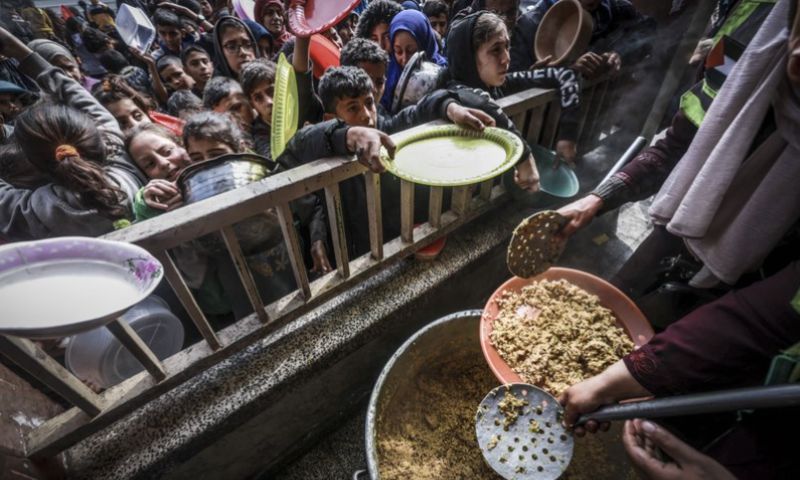GENEVA: Food insecurity reached alarming level across the world in 2023, with around 282 million people suffering from acute hunger due to conflicts, particularly in Sudan and Gaza, according to United Nations agencies and development groups.
The surge in food insecurity, exacerbated by conflicts, extreme weather events, and economic shocks, marks the fifth consecutive year of worsening conditions, painting a bleak outlook for global food security.
According to the Food Security Information Network (FSIN), acute food insecurity affected 24 million more people in 2023 compared to the previous year. Conflict-ridden regions, notably Gaza and Sudan, bore the brunt of this crisis, with escalating tensions exacerbating the already dire situation.
The report highlights the expanding geographic coverage of acute food insecurity, as well as the deteriorating conditions in 12 countries. Fleur Wouterse, Deputy Director of the emergencies office within the UN’s Food and Agricultural Organization (FAO), emphasized the marked deterioration in key food crisis contexts such as Sudan and the Gaza Strip, where humanitarian conditions continue to worsen.
Notably, approximately 700,000 persons, including 600,000 in Gaza alone, teetered on the brink of starvation in 2023. Since 2016, the number of food-insecure people has surged from 108 million to 282 million, doubling the share of the population affected within these areas.
Protracted major food crises persist in countries like Afghanistan, the Democratic Republic of Congo, Ethiopia, Nigeria, Syria, and Yemen, further exacerbating the global food security challenge.
UN Secretary-General Antonio Guterres underscored the gravity of the situation, lamenting that “in a world of plenty, children are starving to death.” He attributed the crisis to a combination of war, climate chaos, and a cost-of-living crisis, exacerbated by insufficient action and inadequate funding.
Looking ahead to 2024, Wouterse emphasized that progress will hinge on the cessation of hostilities in conflict-affected regions. She stressed the urgent need for humanitarian access to areas like Gaza and Sudan, where aid could rapidly alleviate the crisis.
Additionally, worsening conditions in Haiti, driven by political instability and reduced agricultural production, have compounded the food insecurity crisis in the region. The El Nino weather phenomenon poses further challenges, potentially leading to severe drought in West and Southern Africa.






















